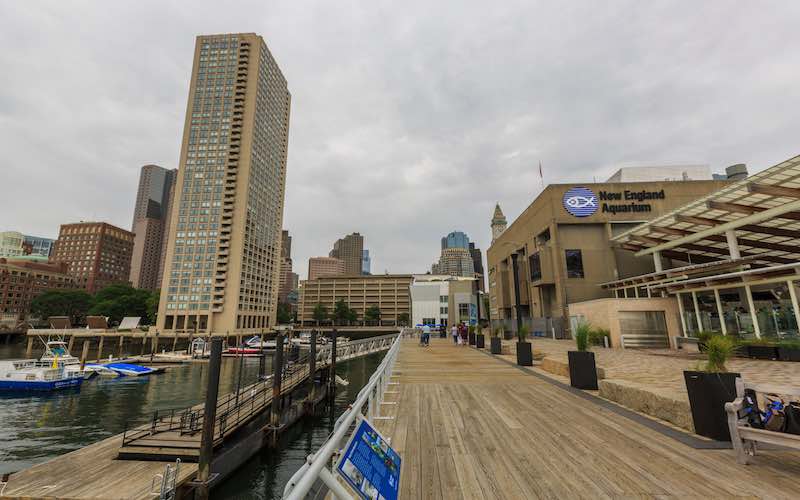
The view from the Boston Harborwalk near the New England Aquarium in Boston, Massachusetts.
July 12, 2022 (BOSTON, MA) – The Massachusetts Supreme Judicial Court has decided in favor of Conservation Law Foundation (CLF) in a case challenging Boston’s Downtown Municipal Harbor Plan (MHP). The plan guides development on a stretch of the waterfront, and CLF has argued that it violated decades-old state laws – including the public’s right to access waterfront areas.
“As we’ve been saying for years, the state’s MHP process is fundamentally flawed,” said Deanna Moran, Interim Vice President of Healthy and Resilient Communities at CLF. “The developer-driven Downtown MHP would have resulted in less public access to one of the city’s greatest treasures – Boston Harbor. Today’s ruling makes it clear that it’s time to center waterfront planning on public access and community input, not developer profits.”
In April 2021, a Massachusetts Superior Court judge threw out the 2018 state plan intended to guide development along a section of Boston’s waterfront that stretches from Long Wharf to the old Northern Avenue Bridge. In 2018, CLF sued to prevent the plan from moving forward, and the court ruled in our favor. The state appealed that decision to the Supreme Judicial Court, which decided that the plan should not have been approved by the state’s Secretary of Energy and Environmental Affairs.
The Downtown Waterfront Municipal Harbor Plan ignored state law that protects the public’s right to access tidelands. It failed to consider the voices of stakeholders and the public. And it abandoned principles governing waterfront development that have been in place since 1990, particularly the size of buildings located at the water’s edge.
In addition, its approval process circumvented the law, specifically the Massachusetts Public Waterfront Act, also known as Chapter 91. The former Secretary of Energy and Environmental Affairs approved the plan, even though he did not have the legal authority to do so. That authority rests solely with the Department of Environmental Protection (MassDEP).
CLF experts are available for further comment.
###
